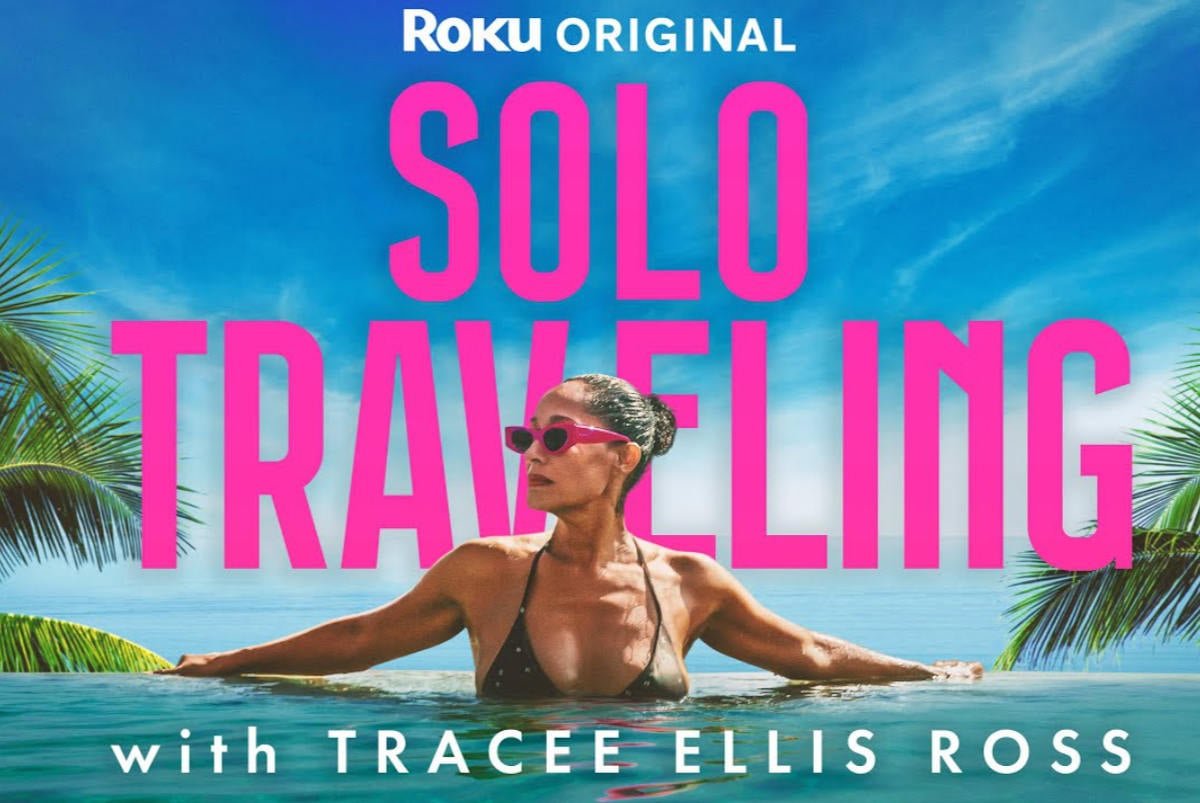Tracee Ellis Ross attends the Travel + Leisure World’s Best Awards 2025 on July 16, 2025 in New York City
Jamie McCarthy/Getty Images for Travel + Leisure

The decision to employ robots across Henn na’s portfolio “is made on a case-by-case basis depending upon location and market conditions,” according to spokeswoman Mami Matsumoto.
Generally, Henn na’s robots can improve operational efficiency by cutting labor costs. Given Japan’s ongoing labor shortage (and falling birth rate), the droids also stand ready to fill open positions. Once guests become accustomed to their strengths and weaknesses, they can find the lack of human interaction convenient.
A decade after opening its first hotel in 2015, Henn na’s management has settled on a hybrid staffing model composed of humans and humanoids. The hotel now operates about 150 robots at the check-in desks or inside guest rooms at 14 of its Japan hotels.
Churi, the in-room personal assistant used in the hotel’s early days, has since been upgraded: At Henn na’s locations in Maihama Tokyo Bay and Osaka Namba, Sharp-developed compact humanoid robots called RoBoHoN serve as dedicated concierges that can turn lighting and air conditioning on and off, answer common guest questions (e.g., “What time is check-out?”), provide real-time information on hotel restaurant and laundry availability, and recommend nearby attractions and dining options. They can also perform more than 70 dances, including hula, flamenco, ballet, and traditional Japanese dance.
As the technology becomes more dependable and guests report consistent quality in service, the hotel is considering deploying more robots at locations where the chain can cut labor costs and improve efficiency without hurting customer satisfaction.
Headcount at some Henn na locations has dropped from about 40 to around eight. A major benefit to businesses, especially to the 24/7 hospitality industry, is that robots function all hours of the day, which boosts customer satisfaction, according to a 2023 report from Stockton University researchers titled “An Examination of Henn Na Hotels.”
Henn na has often been used as a case study to explore how customers respond to robotic integration, Noel Criscione-Naylor, a hospitality professor at Stockton and one of the report’s authors, writes in an email to WIRED. Though research is limited, she says, “it’s reasonable to assume that the more novel or unique the robot appears, the more likely it may provide a sense of perceived value or entertainment to the guest.”
However, the authors note in the report, when anthropomorphic robots look like humans, “guests tend to expect them to possess total human abilities, and with the current technology, robots have a hard time engaging with humans, which can create a negative customer experience.” So maybe don’t expect turndown service from a skinjob anytime soon.
A version of this story originally appeared on WIRED.

The global solo travel market, valued at $482.5 billion in 2024, is projected to surge to $1.07 trillion by 2030, growing at a blistering 14.3% CAGR. This explosion is not merely a post-pandemic rebound but a seismic shift in how people engage with the world. Solo travel is evolving into a $1 trillion wellness-driven consumer revolution, fueled by Gen Z and Millennials prioritizing self-discovery, digital nomadism, and hyper-personalized experiences. For investors, this trend offers a golden opportunity to capitalize on three pillars: lifestyle brands, experiential tech, and emotional wellness platforms.
The solo travel boom is underpinned by three key forces:
1. Post-Pandemic Behavioral Shifts: The pandemic normalized solitude, with 76% of Millennials and Gen Z planning solo trips in 2025. Solo travel is now seen as a path to self-care, mental health, and meaningful social connections.
2. Digital Nomadism: Hybrid work models have turned travel into a lifestyle. Digital nomads, who often stay in destinations for months, are reshaping demand for flexible accommodations, co-working spaces, and wellness-focused stays.
3. Experiential Consumption: Consumers increasingly value experiences over material goods. Solo travelers seek transformative journeys—wellness retreats, cultural immersion, and immersive tech-enhanced adventures.
Hotels and resorts are redefining their offerings to cater to solo travelers. Hilton and The Oberoi Beach Resort in Mauritius, for instance, have introduced “MeMooning” and “Touching Senses” programs, respectively. These include flexible seating, personalized dining, and wellness activities like stargazing and painting.
Investors should target brands that:
– Prioritize Solo-Friendly Design: Look for properties with private spaces, co-working areas, and safety-focused amenities (e.g., women-only tours).
– Leverage Niche Demographics: Women now account for most solo bookings, driven by empowerment and safety innovations. Brands like A&O Hostels in Europe, which blend work-friendly infrastructure with social hubs, are prime candidates.
– Integrate Wellness: The Oberoi’s $200-per-night “Touching Senses” package, which includes cultural workshops and mindfulness sessions, reflects a growing demand for purpose-driven stays.
Technology is the backbone of the solo travel renaissance. AI-powered platforms like Booking.com and Expedia are now offering hyper-personalized itineraries, real-time safety alerts, and dynamic pricing models. Startups are emerging to fill gaps in solo-specific services:
– AI Itinerary Planners: Tools like Much Better Adventures use machine learning to curate adventure-based trips, fostering “type two fun” (shared challenges that build connections).
– Sustainability Platforms: Apps like GreenGo integrate carbon calculators and eco-certified accommodations, appealing to eco-conscious solo travelers.
– AR/VR Integration: Virtual reality tools are enhancing pre-trip planning, while AR apps provide real-time cultural context during visits.
Investors should focus on tech companies that:
– Address Safety and Flexibility: Real-time risk assessment tools and solo-inclusive pricing models are critical for trust-building.
– Gamify Wellness: Platforms that reward eco-conscious behavior or mindfulness practices (e.g., Calm‘s travel-specific meditations) align with Gen Z’s values.
– Scale via Partnerships: Collaborations with local governments or tourism boards (e.g., verified stay directories) enhance credibility and adoption.
Solo travel is increasingly intertwined with mental health. Platforms like Headspace and Calm have expanded their offerings to include travel-specific content, such as guided meditations for long flights or stress-relief exercises for navigating unfamiliar environments.
Emerging startups are carving out niches:
– Moodfit and Worry Watch help travelers track emotional triggers and apply cognitive-behavioral techniques.
– Erika’s Lighthouse provides free mental health resources for young solo travelers, addressing loneliness and anxiety.
– Peer-to-Peer Networks: Platforms like SoloNomads connect travelers for shared adventures, blending social interaction with self-discovery.
Investors should prioritize platforms that:
– Offer 24/7 Accessibility: Solo travelers need on-demand support, especially in time zones with limited local resources.
– Integrate with Travel Infrastructure: Partnerships with airlines, hotels, or insurance providers (e.g., solo-specific travel insurance) create sticky ecosystems.
– Leverage AI for Personalization: Apps that adapt to user behavior (e.g., suggesting a yoga session after a long hike) will dominate.
The solo travel market is not just about selling trips—it’s about selling freedom, self-discovery, and emotional resilience. For investors, the key is to align with companies that understand this shift and are building ecosystems where solo travelers thrive. As the market nears $1 trillion, the winners will be those who blend technology, wellness, and personalization into seamless, transformative experiences.
The time to act is now. The solo travel revolution is not a passing trend—it’s the future of how we live, work, and connect.

Roku Originals has given the green light to season two of Solo Traveling with Tracee Ellis Ross, following the breakout debut of its first season. With record-breaking viewership, the series has become the most-watched unscripted Roku Original within the first two weeks of launch in terms of unique viewers.
Blending humor, heart, and honesty, Ross’s solo adventures resonated with audiences around the world and sparked conversations about the joys of traveling alone and the power of self-discovery. Season 1 followed Ross’s journeys through Morocco, Mexico, and Spain.
In Season 2, fans can look forward to even more meaningful moments and scenic escapes as Ross sets off to new destinations — with (many) checked bags in tow. All episodes will be available for free exclusively on The Roku Channel.
“‘Solo Traveling with Tracee Ellis Ross’ is the #1 unscripted show in Roku history, and now we get to do it all again with a Season 2! Thank you to Roku for your incredible partnership and care with my show, and to the amazing team that made it all possible,” said Tracee Ellis Ross (Black Mirror, Black-ish, Girlfriends).
She continued: “But the biggest thank you goes to everyone who has watched, embraced, and shared my journeys. The way the show is resonating feels truly special—all of the comments, the conversations, the connection… my cup runneth over.
“So here’s to all the solo travelers out there, the aspiring solo travelers, those who share in the joy of solo travel by watching me do it and, of course, to my fellow over-packers! There’s so much more to see and do—the world is our oyster! I can’t wait to see where I’ll be going next and to bring all of you along.”
“Tracee Ellis Ross has set a new gold standard for unscripted storytelling,” said Brian Tannenbaum, Head of Roku Originals. “Her show didn’t just perform—it soared. The response from our streamers has been overwhelming, and we’re deeply grateful to have Tracee returning to guide us through another season filled with heart, purpose, and adventure.”
“‘Solo Traveling with Tracee Ellis Ross’ has struck a powerful chord with audiences, blending inspiration, culture, and authenticity in each destination,” said Olivia LaRoche, Head of Alternative Originals.
LaRoche added: “We’re thrilled to bring it back for another season, with even more of what viewers love: deep stories, bold adventures, and Tracee’s signature spirit that continues to empower, explore, and entertain.”
Joy Mill Entertainment, Artists First, and Story Syndicate produced the first season. Tracee Ellis Ross, E. Brian Dobbins, and Anna Chai serve as executive producers.
Adriana Ambriz and Caroline Soss serve as co-executive producers. Dan Cogan, Liz Garbus, Jon Bardin, Tommy Coriale, and Kate Barry serve as executive producers for Story Syndicate. Olivia LaRoche and Louisa Lenander Friedman oversee the series on behalf of Roku Originals.
Season 1 of Solo Traveling with Tracee Ellis Ross is now streaming for free exclusively on The Roku Channel. The Roku Channel is easy to watch and available to stream for free, no subscription or sign-up required. In addition to Roku devices, The Roku Channel is available on web, iOS, and Android devices, Amazon Fire TV, and select Samsung TVs.

Tracee Ellis Ross has landed a second season of her Solo Traveling series on Roku.
Exclusively reported by Variety, the lifestyle show set viewership records in its debut on the platform. According to a press statement, the series has become the most-watched unscripted Roku Original within the first two weeks of launch in terms of unique viewers.
In the first season, the Girlfriends star traveled through Morocco, Mexico, and Spain, giving viewers an inside look at her adventures, exploring the joys of traveling alone and the power of self-discovery. The second installment is set to continue the conversation, with the 52-year-old creating more meaningful moments in new destinations.
Tracee Ellis Ross attends the Travel + Leisure World’s Best Awards 2025 on July 16, 2025 in New York City
Jamie McCarthy/Getty Images for Travel + Leisure
“Solo Traveling with Tracee Ellis Ross is the #1 unscripted show in Roku history, and now we get to do it all again with a season two!” exclaimed the actress in a press statement.
“Thank you to Roku for your incredible partnership and care with my show, and to the amazing team that made it all possible. But the biggest thank you goes to everyone who has watched, embraced, and shared my journeys. The way the show is resonating feels truly special—all of the comments, the conversations, the connection… my cup runneth over. So here’s to all the solo travelers out there, the aspiring solo travelers, those who share in the joy of solo travel by watching me do it, and, of course, to my fellow over-packers! There’s so much more to see and do—the world is our oyster! I can’t wait to see where I’ll be going next and to bring all of you along.”
“Tracee Ellis Ross has set a new gold standard for unscripted storytelling,” added Brian Tannenbaum, Head of Roku Originals. “Her show didn’t just perform—it soared. The response from our streamers has been overwhelming, and we’re deeply grateful to have Tracee returning to guide us through another season filled with heart, purpose, and adventure.”
Solo Traveling season one was produced by Joy Mill Entertainment, Artists First, and Story Syndicate. Ross, E. Brian Dobbins, and Anna Chai serve as executive producers, with Adriana Ambriz and Caroline Soss serving as co-executive producers. Dan Cogan, Liz Garbus, Jon Bardin, Tommy Coriale, and Kate Barry serve as executive producers for Story Syndicate. The series is overseen by Olivia LaRoche and Louisa Lenander Friedman on behalf of Roku Originals.
“Solo Traveling with Tracee Ellis Ross has struck a powerful chord with audiences, blending inspiration, culture, and authenticity in each destination. We’re thrilled to bring it back for another season, with even more of what viewers love: deep stories, bold adventures, and Tracee’s signature spirit that continues to empower, explore, and entertain,” shared LaRoche.
The first season of Solo Traveling With Tracee Ellis Ross is available to stream for free on the Roku Channel. Watch a preview below.


Bloom Hotels: A Modern Vision of Hospitality Redefining Travel


CheQin.ai sets a new standard for hotel booking with its AI capabilities: empowering travellers to bargain, choose the best, and book with clarity.


Untouched Destinations: Stunning Hidden Gems You Must Visit


This Hidden Beach in India Glows at Night-But Only in One Secret Season


AI Travel Revolution: Must-Have Guide to the Best Experience


Voice AI Startup ElevenLabs Plans to Add Hubs Around the World


How Elon Musk’s rogue Grok chatbot became a cautionary AI tale


Contactless Hospitality: Why Remote Management Technology Is Key to Seamless Guest Experiences


Looking For Adventure In Asia? Here Are 7 Epic Destinations You Need To Experience At Least Once – Zee News


‘Will AI take my job?’ A trip to a Beijing fortune-telling bar to see what lies ahead | China
You must be logged in to post a comment Login